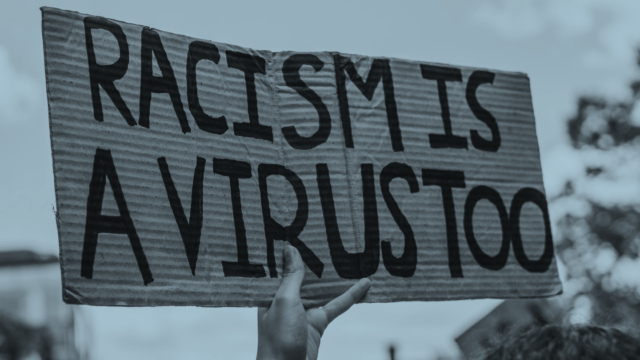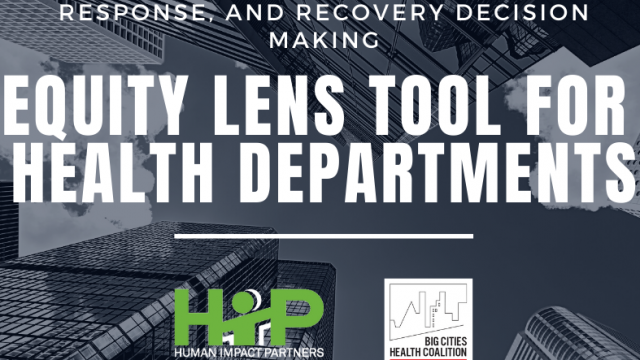ISSUE
Health Equity

Across the country, public health departments work to protect and promote the health of their communities and eliminate disparate health outcomes. Such differences in outcomes continue to persist for Americans of different races and ethnicities, including in large cities – often due to factors such as income and education; exposure to violence or lead; and systems that don’t work for all – including whether and how people can access the health care they need.
Through public education, innovative programming, and collaboration with other government agencies and community partners, health departments work tirelessly to improve the health of everyone in their communities.
Recent common-sense solutions include paid sick leave, livable wage statutes, toxic waste remediation, and making safe, healthy, and affordable housing available.
Explore Inequities
Visit our city data dashboard to explore health disparities data.
Policy recommendations
That said, while hundreds of jurisdictions declared racism a public health crisis in 2020, since then too many have slipped back to “business as usual.” As a coalition, we are working to ensure we keep better pace with the racial justice intentions expressed in 2020.

Report
Centering racial justice in the public health ecosystem
We must reignite our collective, enduring pursuit and demand for bold transformational change rooted in equity and racial justice. This brief, co-authored with our partners at Prevention Institute, synthesizes recommendations from many groups on how to center racial justice as a part of the public health ecosystem.

Frontline Blog
Private: Beyond health disparities: confronting cultural racism
We have worked really hard to understand and address structural racism but it’s not sufficient and does not absolve us from understanding cultural barriers, too. An asset-based perspective can clear the clutter to help us envision health, equity, justice and longevity and plot our way in that direction.
Member spotlight
In the early stages of the COVID-19 pandemic, San Francisco’s Department of Public Health quickly identified communities that were the hardest hit. A new film shows how the health department united with community organizations, health care systems, and academic partners to implement testing and vaccination campaigns to reach Black, Latinx, and other socially and economically marginalized communities.



